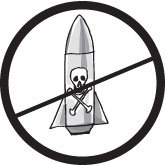Reply To:
Name - Reply Comment
 With some terrorist groups and even countries resorting to the barbarism of chemical warfare and the world facing its biggest threat, we today mark the day on which the conference of State parties decided on November 11, 2005, that a Memorial Day of Remembrance for Victims of Chemical Warfare be observed on April 29 each year.
With some terrorist groups and even countries resorting to the barbarism of chemical warfare and the world facing its biggest threat, we today mark the day on which the conference of State parties decided on November 11, 2005, that a Memorial Day of Remembrance for Victims of Chemical Warfare be observed on April 29 each year.
This is the date in 1997 on which the Chemical Weapons Convention entered into force.
This commemoration will provide an opportunity to pay tribute to the victims of chemical warfare and to reaffirm the commitment of the Organisation for the Prohibition of Chemical Weapons (OPCW) to the elimination of the threat of chemical weapons, thereby promoting the goals of peace, security, and multilateralism. The Third Review Conference of State Parties to the Chemical Convention was held from April 8 to 19, 2013 at the Hague in the Netherlands and it adopted by consensus a political declaration that confirms the “unequivocal commitment” of the State Parties to the global chemical weapons ban. It also made a comprehensive review of CWC implementation since the last Review Conference in 2008 that also mapped out the OPCW’s priorities for the coming five years.
Making a statement at the conference, United Nations Secretary General Ban Ki-moon stressed that progress in achieving the total destruction of chemical weapons must be complemented by efforts, to gain universal adherence to the Convention. According to OPCW Director-General Ahmet Üzümcü, the Chemical Weapons Convention (CWC) has now been in force for more than 17 years. The international community is using this instrument to eliminate the possibility of developing, producing, using, stockpiling or transferring these dreadful weapons. The mission of the OPCW is to implement the provisions of the CWC to achieve a world free of chemical weapons, and a world in which cooperation in the peaceful uses of chemistry is fostered.
In doing this, the ultimate aim is to contribute to international security and stability, general and complete disarmament, and global economic development. Over 98% of the world’s population lives within territories, where the CWC has become the law of the land. It is the fervent hope of the OPCW that soon everyone will share the same protection.
The OPCW says that eight States Albania, India, Iraq, Libya, Russia, Syria, and the United States, which have declared they have chemical weapons, must destroy 8.67 million items, including munitions and containers having, in total 72,525 metric tonnes of extremely toxic chemical agents. Among them Albania, India, Libya and a fourth country have completed destruction.
By comparison, a tiny drop of a nerve agent, no larger than the head of a pin, can kill an adult human being within minutes after exposure. At the same time, State parties in the process of destroying chemical weapons are obliged to place the highest priority on the safety of people and on protecting the environment.
About 65,720 metric tonnes, or 90% of the world’s declared stockpile of 72,525 metric tonnes of chemical agents have been verifiably destroyed. As at 31/10/2015. About 4.97 million, or 57.32%, of the 8.67 million chemical munitions and containers covered by the CWC have been verifiably destroyed. In Sri Lanka, despite a devastating 26-year war with world’s most ruthless terrorist movement, there has been no major problem about chemical weapons.
But on this day Sri Lanka’s people need to be made aware of an equally dangerous dimension. Until the 1970s, the transnational chemical corporations produced mainly chemical weapons for the warring parties. After the World War II, the Korean War and the Vietnam War ended the corporations did not have a big market, so they strategically turned to the production of chemical fertilisers, weedicides and pesticides.
Third World countries were the dumping grounds and Sri Lanka was one of them. Thankfully the National Government, despite protests by innocent though ill-informed farmers, sponsored by vested interests, is going ahead with its mission to gradually switch to organic fertiliser and build a Wasa Wisa Nethi country.